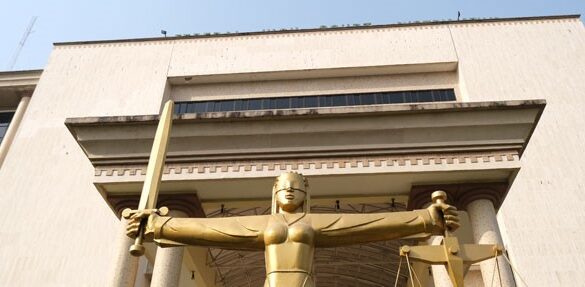The Federal High Court in Lagos dismissed a lawsuit on Tuesday challenging the use of Arabic inscriptions on Nigerian Naira notes.
Justice Yellin Bogoro ruled that under Section 53(1) of the Banks and Other Financial Institutions Act (BOFIA), the Central Bank of Nigeria (CBN) is authorized to print, design, and issue the national currency.
The court emphasized that an action against the Federal Government or the CBN requires a demonstration of bad faith, which the plaintiff failed to establish.
The lawsuit, filed by Lagos-based lawyer Malcolm Omirhobo in January 2020, argued that Arabic is not one of Nigeria’s four official languages (English, Yoruba, Hausa, and Igbo) and is not indigenous to Nigeria. Omirhobo contended that the presence of Arabic on the currency violates certain constitutional provisions.
In response, the CBN filed a preliminary objection, asserting that Omirhobo lacked the standing to sue and defending its actions. Additional defendants, including the Incorporated Trustees of the Muslim Rights Concern (MURIC), its founder Ishaq Akintola, and Kebbi-based lawyer Umar Kalgo, joined the case.
Justice Bogoro dismissed the CBN’s preliminary objection, affirming Omirhobo’s standing as a taxpayer to bring the suit and stressing the importance of encouraging public interest actions. However, the court found that Omirhobo did not prove that the CBN acted in bad faith and thus dismissed the suit.
After the ruling, Omirhobo stated he would review the judgment before deciding on his next steps. He noted that the court recognized Nigeria as a secular state, with no religion or ethnic group superior to another. The court suggested that to promote harmony, it might be time for the CBN and Federal Government to consider removing Arabic inscriptions from higher denomination notes, as has been done with lower denomination notes.
MURIC hailed the judgment as a significant and educational victory, praising the judiciary’s intellectual rigor and adherence to jurisprudence. Akintola criticized Omirhobo’s lawsuit as lacking in religious tolerance and expressed satisfaction with the court’s decision.




